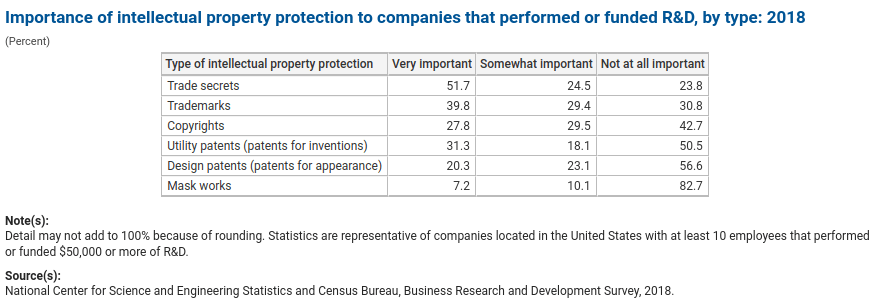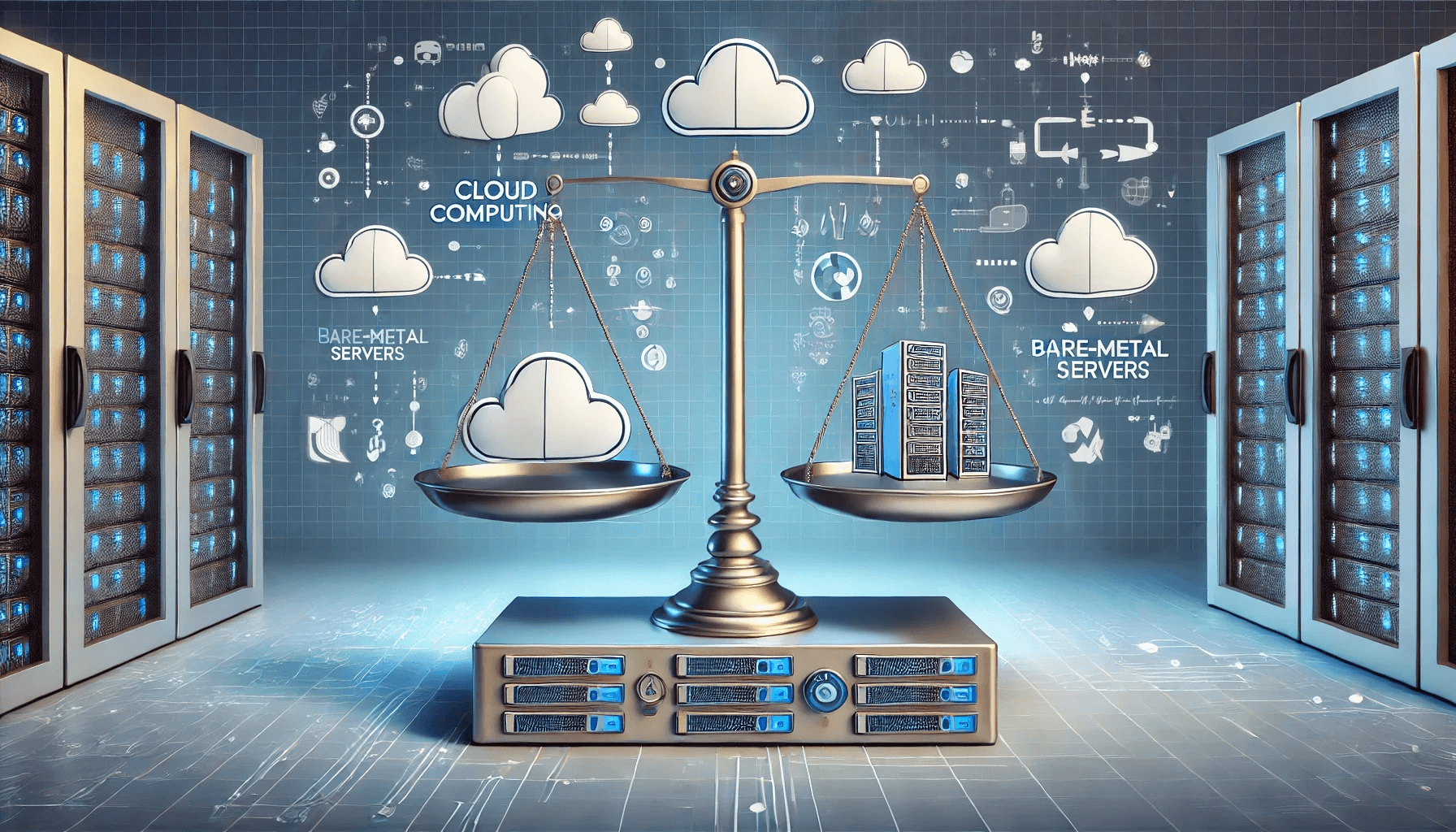Cloud or Bare-Metal Server: What to Choose for Your Infrastructure?

In the rapidly evolving world of IT infrastructure, businesses always come to a difficult decision: Should they embrace the cloud or invest in bare-metal servers and go full-on self-host, perhaps even with their own data-centers?
Both ways offer distinct advantages and drawbacks, and the choice depends on specific business needs, strategies, budget constraints, and long-term goals. This setup is particularly beneficial for enterprises where reliability, scalability, and cost-efficiency are paramount.
So let’s take a look at the situation so we could choose wisely when it’s your turn to choose your side, be it cloud or bare-metal.
The Case for Bare-Metal Servers
Bare-metal servers, or dedicated physical servers, offer complete control over hardware and network configurations. This control translates to enhanced security and consistent performance, which is crucial for businesses handling sensitive data or requiring high-speed data processing. Companies like Ahrefs and Plitch have successfully leveraged bare-metal servers to meet their stringent security and performance needs while keeping costs manageable.
The long-term cost benefits of bare-metal servers are significant, especially when a company fully commits to self-hosting. This involves not just a private cloud solution or colocation, but also full self-maintenance, including renting or building their own data centre. By avoiding recurring rental fees and cloud markups, businesses can save substantial amounts over time. Ahrefs’ experience underscores this point: Their colocation setup in Singapore proved far more economical than an equivalent AWS configuration, saving hundreds of millions in potential cloud costs.
However, the initial investment in bare-metal servers can be daunting. Purchasing hardware, setting up infrastructure, and maintaining it require significant capital and expertise. This upfront cost is often a barrier for startups and small businesses, making the cloud a more attractive option for initial phases.
Scalability is another challenge. While the cloud offers seamless scalability, expanding a bare-metal setup involves purchasing and configuring new hardware, which can be time-consuming and costly. This limitation makes bare-metal servers less ideal for businesses with rapidly changing workloads or those needing quick global expansion.
The Danger of Using Someone Else’s CDN Infrastructure
One often overlooked aspect of cloud computing is the reliance on third-party Content Delivery Network (CDN) providers. While CDNs offer immense benefits in terms of faster content delivery and global reach, they also introduce a significant point of vulnerability. A prime example of this occurred on June 8, 2021, when the CDN provider Fastly experienced an outage.

For just 59 minutes, major websites such as Amazon, Reddit, Twitch, and PayPal were down due to Fastly’s service disruption. The impact was immediate and costly. During this short period, Amazon alone lost an estimated $34 million in sales. To put this into perspective, Amazon generates around $9,615 in sales per second, and such an outage not only affects revenue but also customer trust and brand reputation.
This incident underscores the inherent risk of depending on external CDN providers. Despite their robust infrastructure and quick resolution capabilities, any downtime can lead to significant financial losses and operational disruptions. For businesses heavily reliant on e-commerce or digital services, even a brief outage can have long-lasting consequences.
The Dangers of Depending on Third-Party Cloud-Based Security Solutions
Another critical area of concern is relying on third-party cloud-based security solutions. While these services can provide comprehensive protection, they also represent a single point of failure if something goes wrong. This was starkly illustrated on July 19, 2024, when a faulty update from the cybersecurity provider CrowdStrike caused a global outage.
Thousands of Windows machines experienced a Blue Screen of Death (BSOD) issue, impacting banks, airlines, TV broadcasters, supermarkets, and many more businesses worldwide. The update from CrowdStrike, which is widely used for managing the security of Windows PCs and servers, knocked affected machines offline and forced them into a recovery boot loop, preventing them from starting properly.

The outage affected numerous critical services. UK broadcaster Sky News was unable to broadcast its morning news bulletins, and airlines like Ryanair faced significant disruptions. Even emergency services were impacted, with many 911 call centers in Alaska going offline. The root cause was traced back to an update to the kernel-level driver used by CrowdStrike, which caused the widespread BSODs on Windows hosts.
This incident highlights the potential risks of relying heavily on third-party security providers. While CrowdStrike quickly identified and reverted the faulty update, the damage was already done, and the recovery process was complex and time-consuming for IT administrators. Businesses must weigh the benefits of comprehensive cloud-based security solutions against the risks of such critical dependencies.
The Case for Cloud Computing
Cloud computing has revolutionized IT by offering unparalleled scalability, flexibility, and ease of deployment. Companies like Expedia have leveraged the cloud to consolidate vast amounts of data and ensure global availability. The ability to deploy servers within minutes is a game-changer for businesses needing to scale quickly or operate in multiple regions.
The cloud’s pay-as-you-go model allows startups and smaller companies to avoid hefty upfront investments in hardware. Instead, they can allocate funds to other critical areas of growth. For example, fledgling businesses benefit immensely from the cloud’s flexibility and low initial costs, enabling them to experiment and pivot without significant financial risk.
However, these benefits come at a cost. As David Heinemeier Hansson of 37signals discovered, long-term cloud usage can lead to eye-watering expenses. Despite initial promises of cost-efficiency, many businesses find their cloud bills ballooning as they scale. Heinemeier Hansson’s company faced a staggering $3.2 million annual cloud expenditure, prompting a strategic shift back to bare-metal servers. The unexpected costs and potential for over-provisioning make meticulous cost management essential for businesses relying on cloud services.
Security is another critical consideration. While cloud providers invest heavily in security measures, some companies prefer the control and perceived safety of managing their own infrastructure. Ahrefs, for instance, avoided the cloud primarily due to concerns about data security and cost. They found that their own colocation data center not only provided better control over sensitive data but also resulted in significant financial savings—around $400 million over 2.5 years. Moreover, research indicates that about three-quarters of companies prefer trade secrets over patents for their R&D outputs. This preference highlights the importance of keeping proprietary information confidential. Storing trade secrets on someone else’s cloud, especially with large companies like Amazon, which have been accused of stealing intellectual property and acting as patent trolls, adds a significant layer of risk that many businesses are unwilling to accept.

Finding the Balance

Ultimately, the decision between cloud and bare-metal servers depends on a company’s specific needs, financial situation, and strategic goals. Startups and businesses with fluctuating workloads may find the cloud’s flexibility and lower initial costs appealing. Established companies with stable, predictable workloads might benefit more from the long-term cost savings and control provided by bare-metal servers.
A hybrid approach can also offer the best of both worlds. Companies can leverage the cloud for specific needs, such as rapid deployment and global reach, while relying on bare-metal servers for core infrastructure and sensitive data. This strategy allows businesses to optimize costs, maintain control over critical operations, and scale effectively.
As the IT landscape continues to evolve, businesses must periodically reassess their infrastructure strategies. The key lies in understanding the unique advantages and limitations of each option and aligning them with business objectives. Whether opting for the cloud, bare-metal servers, or a combination of both, informed decision-making will ensure a resilient and cost-effective IT infrastructure for the future.
Explore IPTP Networks Solutions
At IPTP Networks, we understand the challenges businesses face when choosing the right IT infrastructure. That’s why we offer a range of services designed to provide flexibility, control, and cost-efficiency.
- Direct Connection to Cloud Providers: For the instant that you are using a Cloud Provider for hosting your network in different locations but the network in between really needs to improve, IPTP Networks can provide seamlessly connections from one Cloud node to another via our truly global network. Enjoy low latency, high reliability, and secure connections to ensure your business operations run smoothly. Additionally, IPTP Networks can activate 75 data center locations at once based on our ready server hosting infrastructure. Learn more about Direct Connection
- Dedicated Hosting: For businesses that require dedicated physical servers, IPTP Networks offers comprehensive dedicated hosting solutions. Benefit from complete control over your hardware, enhanced security, and consistent performance. Our dedicated hosting services are tailored to meet your specific needs and ensure long-term cost savings. Moreover IPTP Networks can activate dedicated server hosting in 75 Data Centers across the globe at once, based on our ready physical server base Learn more about Dedicated Hosting.
- Edge computing: Position servers closer to end-users to reduce latency and improve performance. Our edge computing solutions help manage distributed devices and ensure optimal connectivity across the globe. Learn more about Edge Computing.
Choose IPTP Networks to empower your business with the right infrastructure solutions tailored to meet your unique needs and objectives. Contact us today to find out how we can help you optimize your IT infrastructure for the future.
